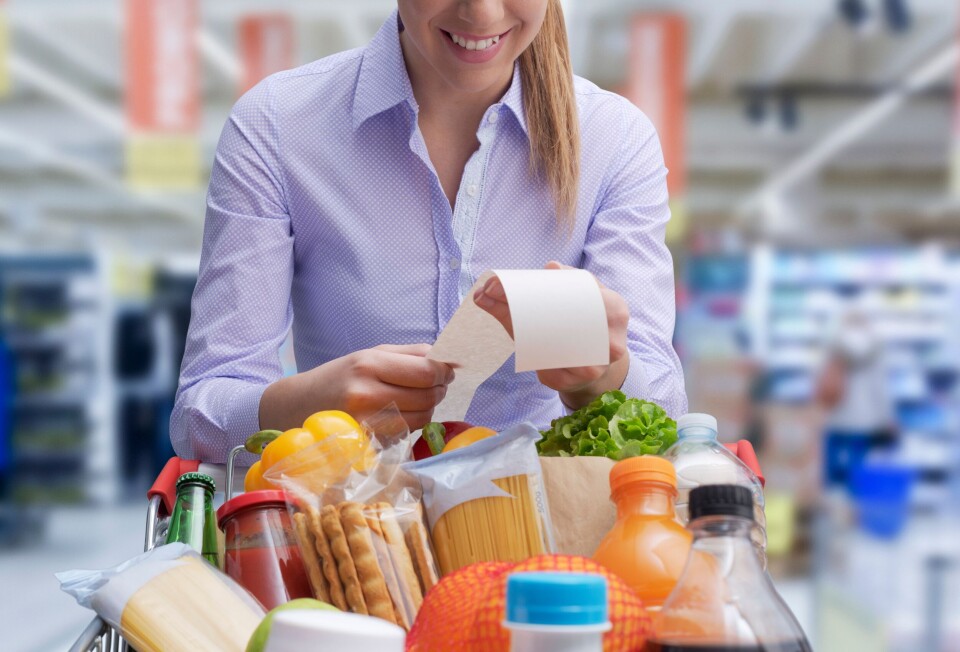-
White storks make strong return in France via nest ‘platforms’ and clipped wings
The Ligue pour la Protection des Oiseaux shares the conservation challenges in saving these birds from extinction
-
Hosting scheme in south-west France lets newcomers sample lifestyle
Households in nine Dordogne communes volunteer under Mes Nouveaux Voisins scheme
-
French boulangeries demand right for staff to work on May 1 so they can open
Artisan bakery owners can work but employees cannot, while certain industrial bakeries are allowed to remain open with workers
The cheapest supermarket in France revealed as others push deals
The shop has prices 15% lower than other stores. Supermarkets generally are beginning to offer their own baskets of low-cost items

The cheapest supermarket in France is a branch of E. Leclerc in a town called Harly in Aisne in the north of France, a new study has found, with prices around 15% lower than the national average.
The independent study found that despite the supermarket operating under the major national brand, it is able to offer very low prices due to negotiations with nearby contacts and local sourcing.
Meat aisle manager Paul Potier told FranceInfo: “Our lamb, beef, and pork are all from local farms - and we have the knowledge to buy entire carcasses [and then cut them up here].”
Buying in bulk in this way helps to save costs. The savings go beyond meat. FranceInfo compared prices on a bottle of orange juice, a bag of pasta and a bottle of washing-up liquid and also found them to be cheaper than the national average.
Estelle Guyot, manager of the non-food aisles, said: “For a year now, we have been able to absorb the rising costs while still being less expensive [for customers].”
Asked by FranceInfo why they shop at the supermarket, clients said: “It’s simple, it’s cheaper. It makes a huge difference.”
The 15% lower average price is highly significant as prices across the country have soared by 13% over the past year.
Read more: Inflation in France: which foods have risen most, will rises continue?
Other major supermarkets promote good deals
Soaring prices have prompted major supermarket brands like Carrefour, Monoprix, and Système U to put ‘anti-inflation baskets’ in place.
These are being offered alongside other promotions. They typically include a limited number of everyday goods whose prices are kept low. Carrefour has already included more than 100 items in the scheme since 2022.
Stéfen Bompais, commercial director of Carrefour, said: “Between the first and second quarter last year there were some [price] rises [on these items], but they were very small.”
Consumer specialist, Olivier Dauvers, said that ‘blocked prices’ usually represent a good deal for shoppers, but that comparison could still help. He said: “A blocked price somewhere doesn’t mean that there isn’t something cheaper somewhere else.
“It just means that the retailer in question has decided not to raise the prices for several weeks, sometimes several months.”
50 low-cost items
The supermarkets’ own ‘anti-inflation’ baskets are not to be confused with the idea of an official basket of low-cost goods as suggested by Minister for Consumer Affairs Olivia Grégoire, which is set to be trialled in March.
Read more: More details revealed on plan for 50 low-cost shopping items in France
This basket would be filled with 50 essential items at low-cost prices, set across all supermarkets.
Seven out of 10 common food and household items rose by more than 10% between January and November 2022 due to inflation, a new report shows. Some, such as toilet paper, rose by considerably more (25%).
Cooking oils, frozen meat, margarine and animal fats, flour, pasta, and couscous were among the products that have risen the most.
It comes as a new type of low-cost supermarket, named Toujust, is set to launch in France in March. It is aiming to sell products by up to 5-10% cheaper than typical supermarkets by working directly with producers.
Related articles
Food prices in France up 12% in a year: will they continue to rise?
























